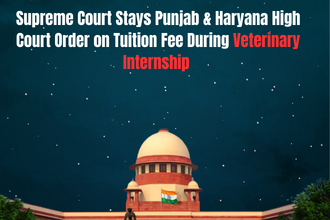In a landmark judgment, the Supreme Court of India overturned the conviction of four men sentenced to life imprisonment for the murder of Mohan Singh, citing unreliable witness testimonies, Flawed Investigation, investigative lapses, and contradictory evidence. The ruling underscores the importance of due process and the necessity of proving guilt beyond a reasonable doubt.
Case Background
The case revolved around the murder of Mohan Singh, who was allegedly attacked while returning home after meeting a friend. His father, Devisingh, lodged an FIR, naming only one suspect—Ramlal—while mentioning an unidentified man in a suit and shoes fleeing the crime scene. However, during the trial, additional names were introduced, and specific roles were attributed to them, raising concerns over the credibility of the prosecution’s case.
A five-member group, including Ramlal, Arun, Radheshyam, Narendra, and Abhay Singh, was initially put on trial. While Abhay Singh was acquitted by the Madhya Pradesh High Court, the other four were convicted and sentenced to life imprisonment. They subsequently appealed to the Supreme Court.
Key Observations by the Supreme Court
A three-judge bench comprising CJI Sanjiv Khanna, Justice Sanjay Kumar, and Justice K.V. Viswanathan identified multiple discrepancies that weakened the prosecution’s case:
- Delayed Witness Statements: The Investigating Officer recorded crucial witness testimonies 7 to 17 days after the incident. The court questioned this unexplained delay, which cast doubt on the credibility of their statements.
- Inconsistent Testimonies: Devisingh, the father of the deceased, initially mentioned only one suspect in the FIR but later named multiple individuals in his court testimony, contradicting his earlier statement.
- Faulty Medical Evidence: The prosecution asserted that the victim had suffered a gunshot wound, but the post-mortem report contradicted this claim, stating that the injury was caused by a stabbing weapon.
- Lack of Physical Evidence: A 12-bore country-made pistol was recovered from one of the accused, but no bullet was retrieved from the victim’s body, raising doubts about the prosecution’s version of events.
- Motive and Bias: The court acknowledged an existing enmity between the deceased’s family and some of the accused, suggesting a potential motive for false accusations.
Legal Reasoning and Final Verdict
The Supreme Court ruled that the prosecution had failed to establish the guilt of the accused beyond a reasonable doubt. It also reiterated that while “Falsus in uno, falsus in omnibus” (false in one thing, false in everything) is not an established legal doctrine in India, significant contradictions in witness testimonies necessitate caution in relying on them.
The court criticized both the Trial Court and the High Court for failing to assess the reliability of the oral evidence properly. Given the inconsistencies and lack of conclusive evidence, the Supreme Court extended the benefit of the doubt to the accused and acquitted them of all charges.
Read More: Supreme Court Issues Notice to CBIC Over GST Rectification Deadlines
Broader Implications
This ruling reinforces several key legal principles:
- Investigative Diligence: Law enforcement agencies must ensure timely and accurate collection of evidence, as delayed statements can severely impact the credibility of a case.
- Burden of Proof: Prosecution must establish guilt beyond a reasonable doubt; suspicion or circumstantial evidence alone is insufficient for conviction.
- Judicial Scrutiny of Witnesses: Courts must critically evaluate witness statements, especially when contradictions emerge over time.
The decision serves as a reminder that the criminal justice system must safeguard against wrongful convictions and uphold the principles of fairness and due process.


